Find Help
More Items From Ergsy search
-

AAA (Abdominal aortic aneurysm) screening
Relevance: 100%
-
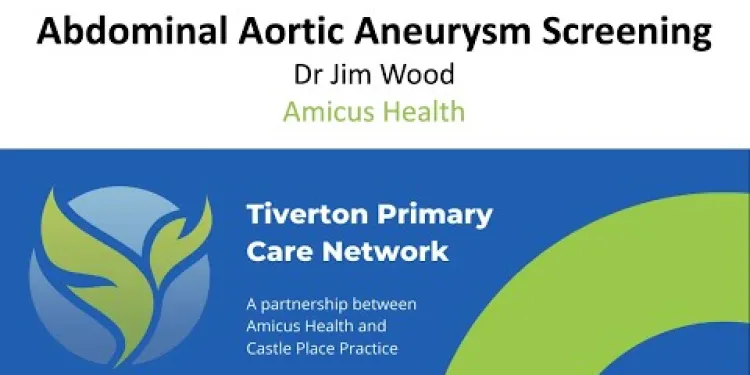
NHS Abdominal Aortic Aneurysm (AAA) Screening
Relevance: 96%
-
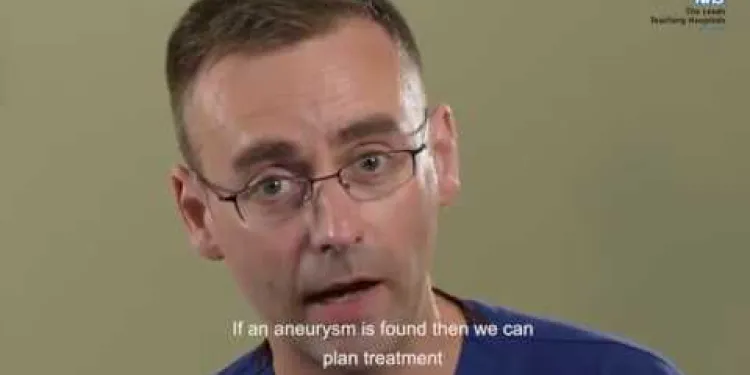
Abdominal Aortic Aneurysm (AAA) screening programme
Relevance: 94%
-

Eddie's Story - Abdominal Aortic Aneurysm (AAA) Screening
Relevance: 94%
-
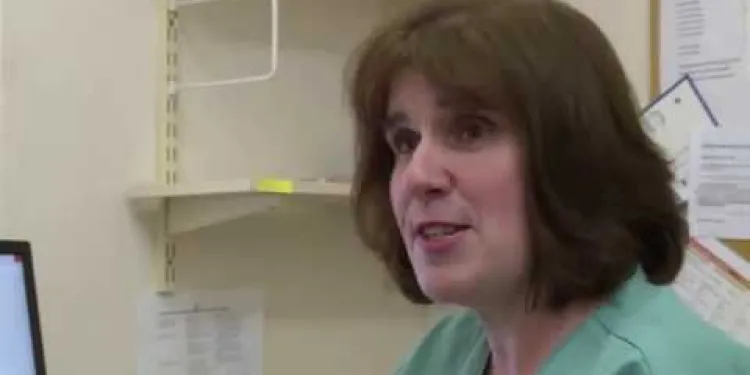
Your abdominal aortic aneurysm (AAA) screening appointment
Relevance: 91%
-

Survivor of an Abdominal Aortic Aneurysm rupture appeals for men to take up NHS Screening Programme.
Relevance: 83%
-
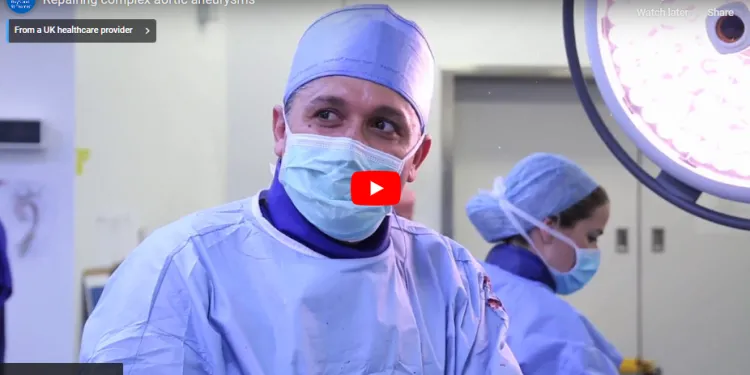
Repairing complex aortic aneurysm
Relevance: 71%
-
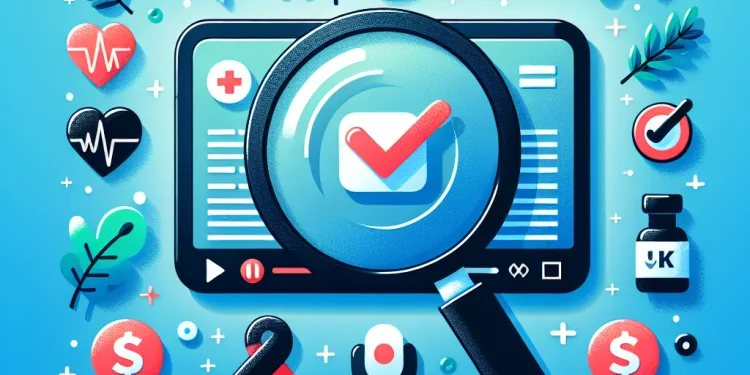
Health Screenings You Should Know About
Relevance: 30%
-
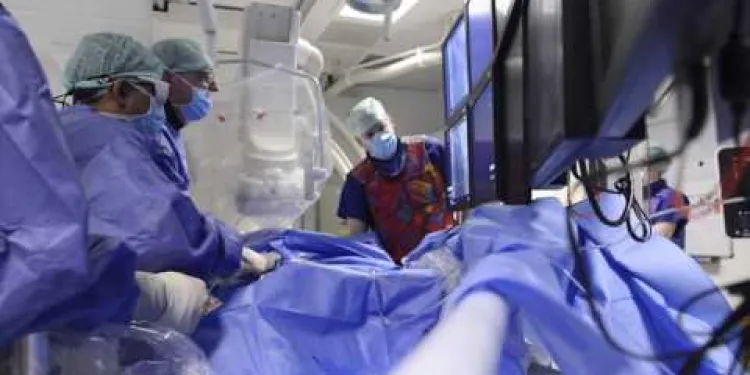
What is it like having a Transcutaneous Aortic Valve Implant (TAVI)?
Relevance: 27%
-

Stomach ache and abdominal pain
Relevance: 26%
-

Can I do abdominal exercises during pregnancy?
Relevance: 26%
-
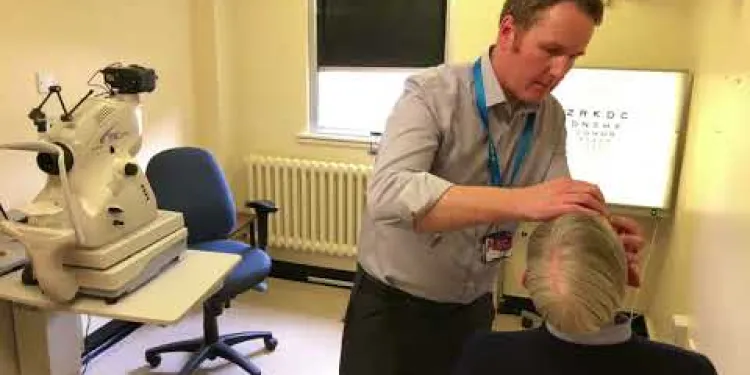
Derbyshire Diabetic Eye Screening - Diabetic Eye Screening
Relevance: 20%
-
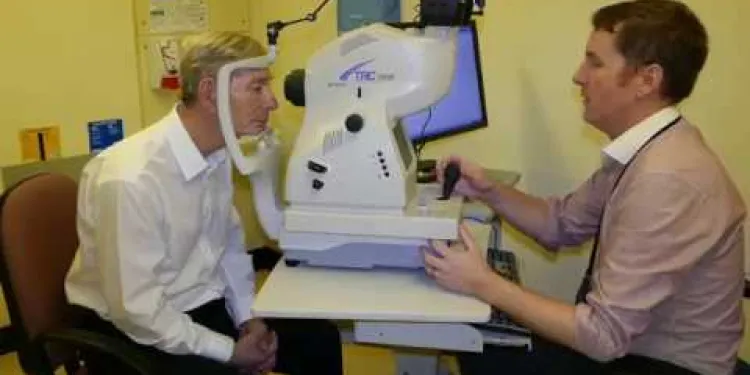
Derbyshire Diabetic Eye Screening - Your Screening Appointment
Relevance: 20%
-
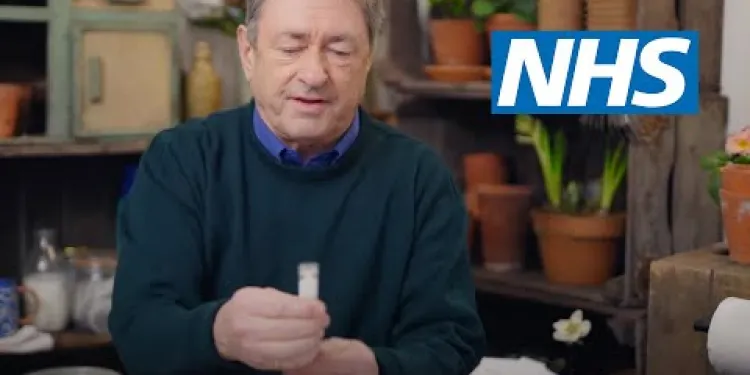
Bowel cancer screening: Alan Titchmarsh and Tommy Walsh | NHS
Relevance: 20%
-

What is cancer screening?
Relevance: 20%
-
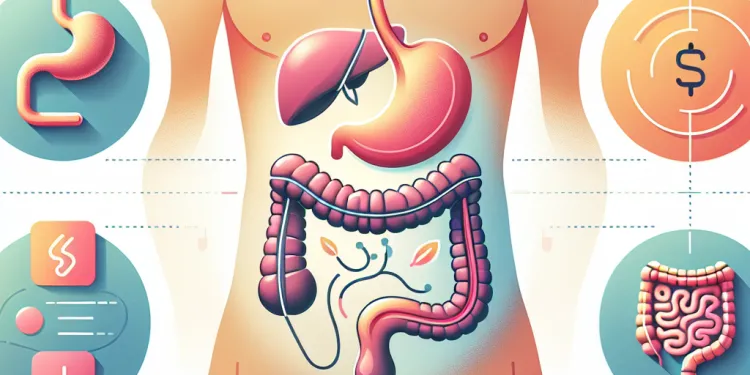
How is appendicitis different from other causes of abdominal pain?
Relevance: 20%
-
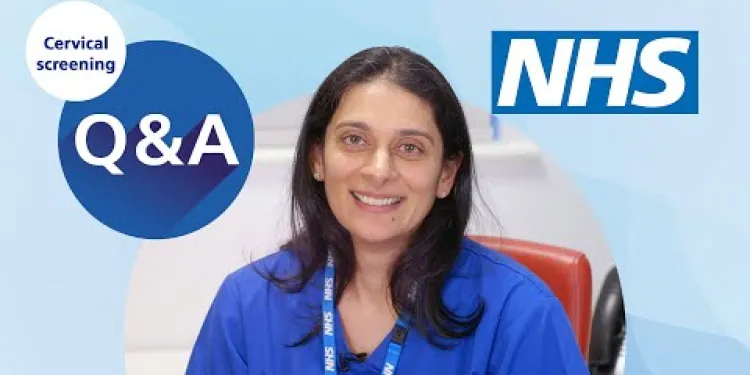
Cervical screening: Q&A | NHS
Relevance: 20%
-

Diabetes Eye Screening
Relevance: 20%
-

AI Breast Cancer Screening in the UK
Relevance: 19%
-
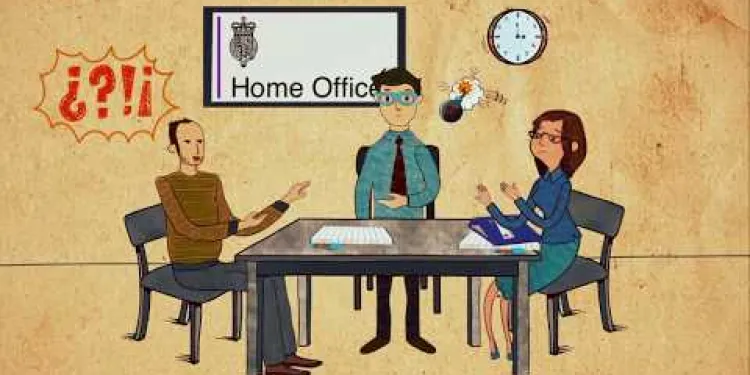
The asylum screening interview
Relevance: 19%
-

What are the recommendations for colorectal cancer screening?
Relevance: 19%
-

NHS breast cancer screening
Relevance: 19%
-

Are there eco-friendly mosquito screen options?
Relevance: 19%
-

Are mosquito window screens effective in the UK?
Relevance: 19%
-

Are Mosquito window screens effective?
Relevance: 19%
-

Are there retractable mosquito screens available?
Relevance: 19%
-
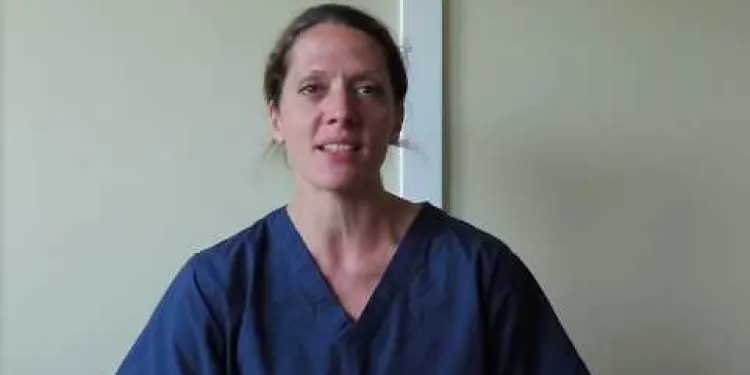
The NHS is #StillHereToHelp with cervical screening
Relevance: 19%
-

Is screening painful or risky for my child?
Relevance: 19%
-
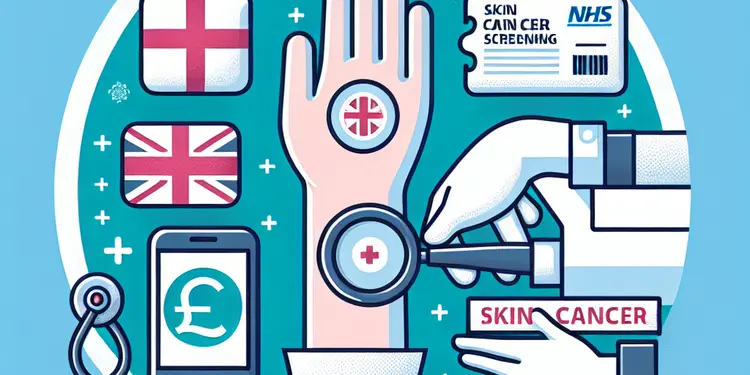
What is a skin cancer screening?
Relevance: 19%
-

How do I maintain my mosquito screens?
Relevance: 19%
-

Can pets damage mosquito screens?
Relevance: 18%
-

NHSGGC - Cervical Cancer Screening - English
Relevance: 18%
-
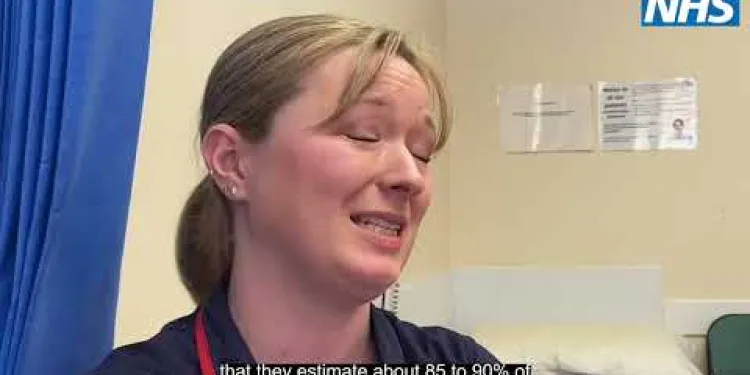
What is cervical screening (smear test)?
Relevance: 18%
-

Do mosquito screens add value to my home?
Relevance: 18%
-

Is genetic screening available for cancer risk?
Relevance: 18%
-
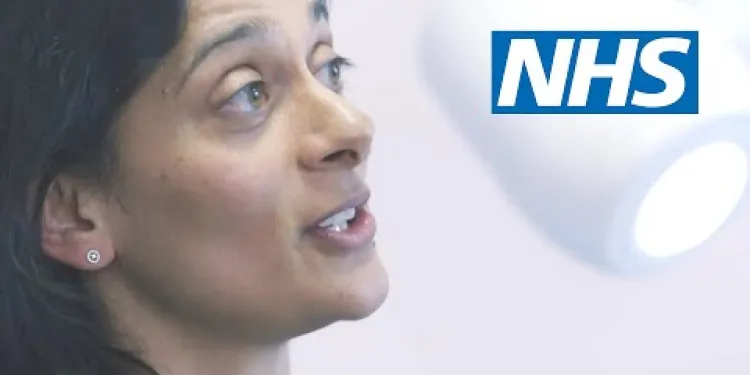
Cervical screening: what to expect | NHS
Relevance: 18%
-

Are mosquito screens effective against midges?
Relevance: 18%
-
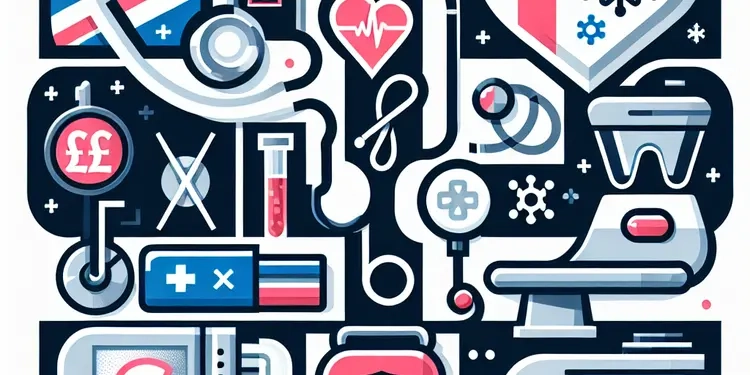
What kinds of cancer screening are available?
Relevance: 18%
-
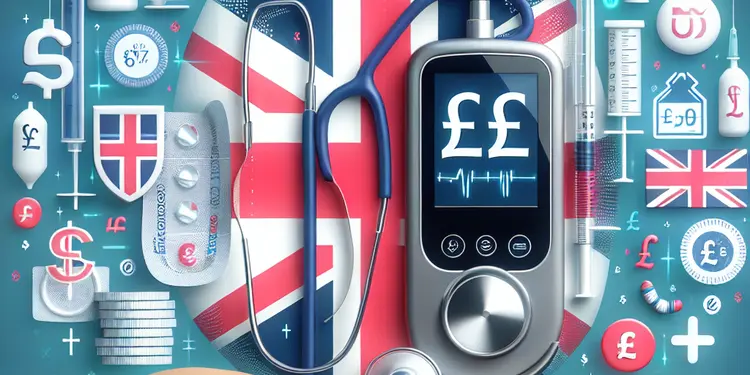
What are the limitations of type 1 diabetes screening?
Relevance: 18%
-

Do mosquito screens provide insulation benefits?
Relevance: 18%
Understanding AAA (Abdominal Aortic Aneurysm) Screening
What is an Abdominal Aortic Aneurysm?
An Abdominal Aortic Aneurysm (AAA) is a condition where the lower part of the aorta, the major blood vessel supplying blood to the body, becomes enlarged and bulges. If left untreated, the aneurysm can grow and eventually rupture, leading to life-threatening internal bleeding. Early detection through screening is crucial to prevent severe complications.Importance of AAA Screening
AAA screening is essential as it helps detect the presence of an aneurysm before any symptoms arise. Most people with an AAA do not experience noticeable symptoms, making the condition difficult to identify without screening. Identifying an AAA early allows for monitoring and timely surgical intervention, significantly reducing the risk of rupture and improving survival rates.Who Should Get Screened?
In the United Kingdom, AAA screening is primarily offered to men aged 65 and over, as they are at a higher risk. This demographic group is automatically invited to participate in the NHS AAA Screening Programme. Although not routinely invited, men over 65 who have not been screened can request a screening, and women or younger men with a family history or other risk factors may discuss the possibility with their GP.The Screening Process
The AAA screening process is straightforward and non-invasive. It involves a simple ultrasound scan of the abdomen to measure the size of the aorta. The procedure is quick, usually taking about 10-15 minutes, and is painless. If an aneurysm is detected, the individual will be referred for further assessment and management, which may include regular monitoring or surgery depending on the aneurysm's size and condition.Benefits and Risks of Screening
The primary benefit of AAA screening is the early detection of aneurysms, allowing for timely intervention and reducing the risk of rupture. Screening has been shown to decrease AAA-related mortality significantly. However, it is important to consider the psychological impact of diagnosing an aneurysm and the potential complications associated with interventions. Discussing these aspects with a healthcare provider can help in making an informed decision.Conclusion
AAA screening is a vital health measure for preventing serious complications associated with abdominal aortic aneurysms. In the UK, the NHS provides a robust screening programme targeting at-risk populations, ensuring early detection and timely treatment. If you are in the eligible age group or have risk factors, taking advantage of this service can safeguard your health and provide peace of mind.Understanding AAA (Abdominal Aortic Aneurysm) Screening
What is an Abdominal Aortic Aneurysm?
An Abdominal Aortic Aneurysm, or AAA, is when a big blood vessel in your tummy gets bigger than it should. This blood vessel is called the aorta and it moves blood around your body. If the aorta gets too big, it might burst, which can be very dangerous. Screening can help find AAAs early so they can be taken care of before any problems happen.Importance of AAA Screening
AAA screening is important because it helps doctors find an aneurysm before you feel sick. Many people with an AAA don't feel any different, so it's hard to know they have it. If doctors find an AAA early, they can watch it closely or do surgery to fix it, which helps keep you safe.Who Should Get Screened?
In the UK, men who are 65 years old or older get asked to come for AAA screening. This is because they are more likely to have an AAA. If you are a man over 65 and haven't been screened, you can ask for it. Women or younger men with a family member who had an AAA, or have other health risks, can talk to their doctor about it, too.The Screening Process
AAA screening is easy and doesn't hurt. A doctor will use a special camera to look inside your tummy. This only takes about 10 to 15 minutes. If the doctor finds an AAA, they will tell you what to do next. You might need more check-ups or surgery, depending on how big it is.Benefits and Risks of Screening
The best thing about AAA screening is that it can find problems early, so doctors can fix them and keep you healthy. This can stop the aorta from bursting. But, finding out you have an AAA can make you feel worried. It's good to talk to a doctor about the good and bad things, so you know what's best for you.Conclusion
AAA screening is very helpful for staying healthy and safe. In the UK, the NHS helps people get screened, especially those who need it the most. If you are in the right age group or have reasons to worry, getting screened can help protect your health and make you feel better about your well-being.Frequently Asked Questions
What is an Abdominal Aortic Aneurysm (AAA)?
An Abdominal Aortic Aneurysm (AAA) is a swelling or bulge in the aorta, the main blood vessel that runs from the heart down through the chest and abdomen. If not monitored and treated, it can be life-threatening.
Who is eligible for AAA screening in the UK?
In the UK, NHS offers AAA screening to men aged 65 and over. Men are invited for screening during the year they turn 65.
How is the AAA screening test performed?
The screening test involves a simple, quick, and painless ultrasound scan of your abdomen to measure the size of your aorta.
Do women need to be screened for AAA?
Women are generally at a much lower risk for AAA, so routine screening is not offered to them. However, if a woman has a history of the condition or other risk factors, she should consult her GP.
What happens if an aneurysm is found during screening?
If an AAA is detected, the action taken depends on its size. Small aneurysms require regular monitoring, while large ones may need surgical intervention.
How often should men be screened for AAA?
Men aged 65 and over should undergo a one-time screening. If no aneurysm is found, no further action is usually needed. If one is found, monitoring or treatment plans will be put into place.
What are the risks involved in AAA screening?
AAA screening is a simple and safe procedure with minimal risks. The ultrasound scan does not involve radiation and is generally considered very low risk.
What are the symptoms of an AAA?
AAAs usually grow slowly without symptoms, making them difficult to detect without screening. However, symptoms may include a pulsating feeling in the abdomen, deep constant pain in the abdomen or back, and a sudden intense pain in the abdomen.
What are the risk factors for developing an AAA?
Risk factors include smoking, high blood pressure, atherosclerosis, being male, being aged 65 or older, and a family history of AAA.
Can lifestyle changes reduce the risk of AAA?
Yes, lifestyle changes such as quitting smoking, maintaining a healthy blood pressure, eating a balanced diet, and regular exercise can reduce the risk of developing an AAA.
Is AAA screening covered by the NHS?
Yes, AAA screening is offered for free by the NHS to men when they turn 65.
How accurate is the AAA screening test?
The ultrasound scan used in AAA screening is highly accurate and reliable for detecting the presence and size of an aneurysm.
What types of treatment are available for AAA?
Treatment options range from monitoring small aneurysms with regular scans to surgical interventions for larger or rapidly growing aneurysms. Surgical options include open surgery and endovascular aneurysm repair (EVAR).
What should I do if I miss my AAA screening appointment?
If you miss your appointment, contact your local AAA screening service to reschedule.
Where can I find more information about AAA screening?
You can find more information about AAA screening on the NHS website or by speaking to your GP.
What is an Abdominal Aortic Aneurysm (AAA)?
A big blood tube in your belly can get a bump. This bump is called an Abdominal Aortic Aneurysm, or AAA.
If you need help reading, you can ask someone to read this to you or use a reading app. Using pictures or videos can also make it easier to understand.
An Abdominal Aortic Aneurysm, or AAA, is when a big blood tube in your body gets swollen. This tube is called the aorta, and it goes from your heart through your chest and tummy. If it's not checked and fixed, it can be very dangerous.
To help understand, you can:
- Use simple pictures or diagrams to see what an aorta looks like.
- Ask someone to explain it to you using easy words.
- Watch a video about how the heart and blood tubes work.
Who can get a AAA test in the UK?
In the UK, the NHS checks the tummy of men who are 65 years and older for something called AAA. The NHS asks men to come for this check when they turn 65.
How do doctors do the AAA test?
The test is quick and easy. It uses a machine called an ultrasound to look at your tummy. This helps the doctor see how big your aorta is. The test does not hurt at all.
Do women need to be checked for AAA?
AAA stands for Abdominal Aortic Aneurysm. This is a swelling in a big blood vessel in the belly. It's important to catch it early because it can be dangerous if it grows too big.
Doctors can do a special test, like an ultrasound, to see if someone has an AAA. This test is like taking a picture of the inside of your belly.
Women usually don't need this test as often as men. But some women might need it if they have other risk factors. Talk to your doctor to see what's best for you.
If you find it hard to understand this, you can ask someone to explain it to you. You can also use tools like a voice reader to read it out loud. This might make it easier to understand.
Women do not usually get AAA as much as men. Because of this, regular checks are not given to them. But if a woman has had AAA before or has other things that may cause it, she should talk to her doctor.
What happens if a doctor finds an aneurysm during a check-up?
If doctors find an AAA, what they do next depends on how big it is. Small ones need to be checked regularly by doctors. Big ones might need an operation to fix them.
How often should men check for AAA?
Men should have a check-up to look for AAA once when they are older. It is good to do this at age 65. This check-up can help keep you healthy.
A supportive tool is a calendar reminder. It can help you remember when to have your check-up.
Men who are 65 years old or older should have a health check one time. This check looks for something called an aneurysm. If the doctor doesn't find an aneurysm, you don't need to do anything else. If the doctor finds one, they will help you with a plan to keep you healthy and safe.
What are the risks of AAA screening?
Screening means checking your health before you feel sick.
AAA screening looks for a big lump in a blood tube (called an aneurysm) in your belly.
Here are some risks:
- You might feel worried if the test finds a problem.
- The test might show a problem that isn't there (false alarm).
- You might need more tests. Some tests can hurt a little.
- Sometimes, tests or treatments can lead to problems.
If you have questions, talk to your doctor or nurse. They can help you understand more.
You can use pictures or videos to help understand better.
AAA screening is a simple and safe check-up. It doesn't have a lot of risks. The scan uses sound waves, not radiation, so it is very safe.
What are the signs of an AAA?
An AAA is a big bump in a blood tube inside your tummy. It can have signs like:
- Tummy or back pain that does not go away.
- A feeling that your heart is beating fast in your tummy.
- If it bursts, you may feel very sick and dizzy.
If you are worried, talk to a doctor or a grown-up. They can help you.
An AAA is a big, weak spot in a blood tube in the belly. It usually grows slowly, and you might not feel sick, so it's hard to know it's there unless a doctor checks. But sometimes you might feel a strong heartbeat in your belly, a deep pain in your belly or back, or sudden sharp belly pain.
Tools like picture books about the body or apps with body diagrams can help you learn more about how your body works. Talking to a doctor or nurse can also help you understand.
What makes it more likely to get an AAA?
Things that can make you sick are:
- Smoking cigarettes
- Having high blood pressure
- Having thick or hard blood vessels (this is called atherosclerosis)
- Being a man
- Being 65 years old or older
- If your family members have been sick with AAA
AAA stands for a kind of sickness called Abdominal Aortic Aneurysm.
Can changing how you live lower the chance of getting AAA?
AAA stands for Abdominal Aortic Aneurysm. It is a swelling in a big blood vessel in your tummy. If it gets too big, it can be dangerous.
You might wonder if changing the way you live can help. Yes, it can! Here are some things you can do:
- Eat healthy foods: Try to eat more fruits and vegetables.
- Exercise regularly: Move your body every day, like walking or playing outside.
- Don’t smoke: Smoking can be bad for your blood vessels.
- See your doctor: Have regular check-ups to keep an eye on your health.
These changes can help keep your blood vessels strong and healthy!
You might find it helpful to use pictures or apps to remember these tips. Ask someone you trust to help you if you need more support.
Yes, you can make some changes to your life to help stay healthy. You can:
- Stop smoking.
- Keep your blood pressure in a healthy range.
- Eat healthy food.
- Exercise regularly.
These changes can help you lower the risk of getting an AAA (a type of illness).
Does the NHS pay for AAA screening?
The NHS can check for AAA. This is a test to see if a big blood tube in your tummy is getting too big. If you need this test, the NHS will pay for it.
If you think you need help to understand, you can:
- Ask a friend or family member to explain.
- Use pictures or photos to help understand the words.
- Talk to your doctor or nurse. They can give you more help.
Yes, the NHS gives a free AAA test to men when they are 65.
How good is the AAA test at finding problems?
The ultrasound scan used to check for an aneurysm is very good at finding it and knowing how big it is.
What treatments can help with AAA?
Doctors have ways to help if you have an AAA (abdominal aortic aneurysm).
Here are some ways they can help:
- Watch and Wait: If the AAA is small, doctors might check it often to make sure it doesn't get bigger.
- Medicines: Doctors can give you medicine to help with blood pressure and make the aneurysm grow slower.
- Surgery: If the AAA is big, a doctor might do an operation to fix it.
It's important to talk to a doctor about what is best for you. You can ask a doctor or a nurse if you have any questions.
Treatment choices can be different. If the aneurysm is small, doctors might just watch it with scans. If it's big or growing fast, doctors might do surgery. There are two types of surgery: open surgery or endovascular aneurysm repair (EVAR).
What to do if I miss my AAA screening appointment?
If you forget your AAA screening check, don’t worry! Here’s what you can do:
- Call the clinic: Use the phone number on your letter to call them.
- Ask for a new date: Tell them you missed your check and ask for a new one.
- Write down the new date: Put it on a calendar or tell someone to remind you.
It's important to go to your AAA screening to stay healthy.
If you need help, ask a friend or family member to help you with calls.
If you can't go to your appointment, call your local AAA screening service to make a new one.
Where can I learn more about AAA screening?
If you want to know more about AAA screening, try these tips:
- Ask a doctor or nurse. They can help explain it.
- Look for a book or a flyer about AAA screening.
- Visit a health clinic and ask for information.
You can also use these tools to learn:
- Audio Books: Listen to books about health.
- Videos: Watch videos that explain AAA screening.
- Apps: Download apps that teach about health.
You can learn more about AAA screening by visiting the NHS website. You can also talk to your doctor for more information.
Useful Links
This website offers general information and is not a substitute for professional advice.
Always seek guidance from qualified professionals.
If you have any medical concerns or need urgent help, contact a healthcare professional or emergency services immediately.
Some of this content was generated with AI assistance. We’ve done our best to keep it accurate, helpful, and human-friendly.
- Ergsy carfully checks the information in the videos we provide here.
- Videos shown by Youtube after a video has completed, have NOT been reviewed by ERGSY.
- To view, click the arrow in centre of video.
- Most of the videos you find here will have subtitles and/or closed captions available.
- You may need to turn these on, and choose your preferred language.
- Go to the video you'd like to watch.
- If closed captions (CC) are available, settings will be visible on the bottom right of the video player.
- To turn on Captions, click settings .
- To turn off Captions, click settings again.
More Items From Ergsy search
-

AAA (Abdominal aortic aneurysm) screening
Relevance: 100%
-

NHS Abdominal Aortic Aneurysm (AAA) Screening
Relevance: 96%
-

Abdominal Aortic Aneurysm (AAA) screening programme
Relevance: 94%
-

Eddie's Story - Abdominal Aortic Aneurysm (AAA) Screening
Relevance: 94%
-

Your abdominal aortic aneurysm (AAA) screening appointment
Relevance: 91%
-

Survivor of an Abdominal Aortic Aneurysm rupture appeals for men to take up NHS Screening Programme.
Relevance: 83%
-

Repairing complex aortic aneurysm
Relevance: 71%
-

Health Screenings You Should Know About
Relevance: 30%
-

What is it like having a Transcutaneous Aortic Valve Implant (TAVI)?
Relevance: 27%
-

Stomach ache and abdominal pain
Relevance: 26%
-

Can I do abdominal exercises during pregnancy?
Relevance: 26%
-

Derbyshire Diabetic Eye Screening - Diabetic Eye Screening
Relevance: 20%
-

Derbyshire Diabetic Eye Screening - Your Screening Appointment
Relevance: 20%
-

Bowel cancer screening: Alan Titchmarsh and Tommy Walsh | NHS
Relevance: 20%
-

What is cancer screening?
Relevance: 20%
-

How is appendicitis different from other causes of abdominal pain?
Relevance: 20%
-

Cervical screening: Q&A | NHS
Relevance: 20%
-

Diabetes Eye Screening
Relevance: 20%
-

AI Breast Cancer Screening in the UK
Relevance: 19%
-

The asylum screening interview
Relevance: 19%
-

What are the recommendations for colorectal cancer screening?
Relevance: 19%
-

NHS breast cancer screening
Relevance: 19%
-

Are there eco-friendly mosquito screen options?
Relevance: 19%
-

Are mosquito window screens effective in the UK?
Relevance: 19%
-

Are Mosquito window screens effective?
Relevance: 19%
-

Are there retractable mosquito screens available?
Relevance: 19%
-

The NHS is #StillHereToHelp with cervical screening
Relevance: 19%
-

Is screening painful or risky for my child?
Relevance: 19%
-

What is a skin cancer screening?
Relevance: 19%
-

How do I maintain my mosquito screens?
Relevance: 19%
-

Can pets damage mosquito screens?
Relevance: 18%
-

NHSGGC - Cervical Cancer Screening - English
Relevance: 18%
-

What is cervical screening (smear test)?
Relevance: 18%
-

Do mosquito screens add value to my home?
Relevance: 18%
-

Is genetic screening available for cancer risk?
Relevance: 18%
-

Cervical screening: what to expect | NHS
Relevance: 18%
-

Are mosquito screens effective against midges?
Relevance: 18%
-

What kinds of cancer screening are available?
Relevance: 18%
-

What are the limitations of type 1 diabetes screening?
Relevance: 18%
-

Do mosquito screens provide insulation benefits?
Relevance: 18%


